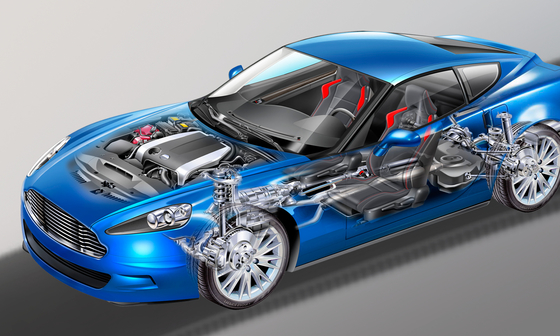The automotive industry, often referred to as the automobile industry, encompasses a wide range of companies and organizations involved in the design, development, manufacturing, marketing, and selling of motor vehicles. From the invention of the first automobile to the present-day innovations in electric and autonomous vehicles, the automotive fleeManforsheriff.com industry has undergone significant evolution.
Evolution of Automobiles
Early Days of Automobiles
The journey of automobiles began in the late 19th century with the invention of the first gasoline-powered internal combustion engine by Karl Benz in 1885. This invention paved the way for the development of the first practical automobile, the Benz Patent-Motorwagen, in 1886. Subsequently, other pioneers such as Henry Ford introduced mass production techniques, making automobiles more accessible to the general public.
Mass Production and Assembly Lines
The introduction of the assembly line by Henry Ford revolutionized the automotive industry in the early 20th century. Mass production techniques allowed for the efficient manufacture of vehicles, leading to lower costs and increased affordability. This era marked the democratization of automobiles, making them a ubiquitous mode of transportation worldwide.
Innovations in Modern Automobiles
In recent decades, the automotive industry has witnessed rapid advancements in technology, leading to the development of safer, more efficient, and environmentally friendly vehicles. Innovations such as electric propulsion, autonomous driving systems, and connectivity features have transformed the way we perceive automobiles.
Types of Vehicles
The automotive industry produces a diverse range of vehicles tailored to different purposes and consumer needs.
Passenger Vehicles
Passenger vehicles, including sedans, hatchbacks, SUVs, and crossovers, are designed primarily for the transportation of passengers. These vehicles cater to individual consumers and families, offering comfort, convenience, and style.
Commercial Vehicles
Commercial vehicles encompass a variety of automobiles used for transporting goods and passengers for commercial purposes. This category includes trucks, vans, buses, and commercial fleets utilized by businesses, logistics companies, and public transportation agencies.
Special Purpose Vehicles
Special purpose vehicles are designed for specific tasks or industries, such as emergency vehicles, military vehicles, and agricultural machinery. These vehicles are engineered to meet the unique requirements of their intended applications.
Key Players in the Automotive Industry
The automotive industry is populated by a diverse array of players, ranging from established global manufacturers to up-and-coming startups.
Global Manufacturers
Global automotive manufacturers such as Toyota, Volkswagen, General Motors, and Ford dominate the market with their extensive production capabilities, established supply chains, and vast distribution networks.
Emerging Players
In recent years, a wave of innovative startups and tech companies has emerged, challenging the traditional automotive players with disruptive technologies and business models. Companies like Tesla, Waymo, and Rivian are pushing the boundaries of innovation in electric vehicles, autonomous driving, and mobility services.
Automotive Technologies
Advancements in technology have been instrumental in shaping the future of the automotive industry.
Electric Vehicles
The shift towards electric vehicles (EVs) represents a significant trend in the automotive industry, driven by concerns over climate change and the depletion of fossil fuels. EVs offer a cleaner and more sustainable alternative to traditional internal combustion engine vehicles, with lower emissions and reduced reliance on finite resources.
Autonomous Driving
Autonomous driving technology holds the promise of safer and more efficient transportation by eliminating human error and improving traffic flow. Companies like Waymo, Tesla, and GM’s Cruise are investing heavily in autonomous vehicle development, aiming to bring fully self-driving cars to the market in the near future.
Connected Cars
Connected car technology enables vehicles to communicate with each other, infrastructure, and external services, enhancing safety, convenience, and entertainment for passengers. Features such as advanced driver assistance systems (ADAS), real-time traffic updates, and in-car connectivity are becoming increasingly commonplace in modern vehicles.
Challenges Facing the Automotive Industry
Despite its advancements, the automotive industry faces several challenges that threaten its sustainability and growth.
Environmental Concerns
The environmental impact of conventional vehicles, including air pollution and greenhouse gas emissions, poses a significant challenge for the automotive industry. Pressure to reduce carbon footprints and comply with increasingly stringent regulations is driving the transition towards cleaner and greener transportation solutions.
Regulatory Compliance
The automotive industry operates in a highly regulated environment, with stringent safety, emissions, and fuel efficiency standards imposed by governments worldwide. Compliance with these regulations requires significant investments in research, development, and manufacturing processes, adding complexity and cost to the industry.
Technological Disruption
The rapid pace of technological innovation presents both opportunities and challenges for traditional automotive manufacturers. Disruptive technologies such as electric propulsion, autonomous driving, and mobility services are reshaping the competitive landscape, forcing established players to adapt or risk obsolescence.
Future Trends in the Automotive Industry
Looking ahead, several key trends are poised to shape the future of the automotive industry.
Shift towards Electric Vehicles
The ongoing electrification of the automotive industry is expected to accelerate in the coming years, driven by advancements in battery technology, government incentives, and consumer demand for sustainable transportation options.
Integration of AI and IoT
Artificial intelligence (AI) and the Internet of Things (IoT) are playing an increasingly prominent role in automotive technology, enabling vehicles to become smarter, safer, and more connected. AI-powered systems enhance vehicle autonomy, optimize performance, and personalize the driving experience for users.
Rise of Mobility as a Service (MaaS)
The concept of Mobility as a Service (MaaS) is gaining traction as urbanization and changing consumer preferences drive demand for alternative transportation solutions. MaaS platforms offer integrated, on-demand mobility services, including ride-hailing, car-sharing, and public transit, providing users with convenient and cost-effective transportation options.
Impact of the Automotive Industry on Society
The automotive industry exerts a profound influence on society, shaping economic, environmental, and social outcomes.
Economic Impact
The automotive industry is a significant contributor to global economic growth, generating employment, investment, and innovation across the supply chain. Automotive manufacturing hubs serve as economic engines for local communities, driving prosperity and development.
Environmental Impact
The environmental footprint of the automotive industry extends beyond vehicle emissions to include manufacturing processes, raw material extraction, and end-of-life

